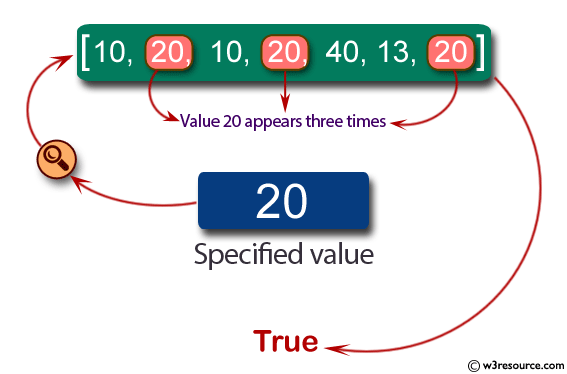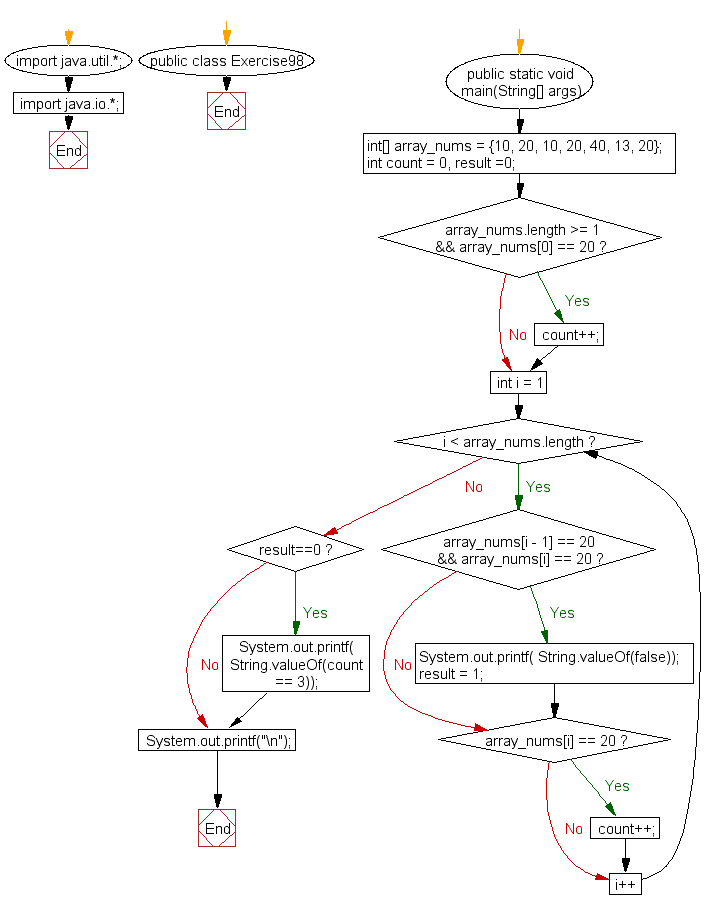Java: Check if the value 20 appears three times and no 20's are next to each other in a given array of integers
20 Appears Thrice Non-Consecutively
Write a Java program to check if the value 20 appears three times and no 20's are next to each other in the array of integers.
Pictorial Presentation:

Sample Solution:
Java Code:
import java.util.*;
public class Exercise98 {
public static void main(String[] args) {
int[] array_nums = {10, 20, 10, 20, 40, 13, 20};
int count = 0; // Initialize a count variable to keep track of the number of occurrences of 20
int result = 0; // Initialize a result variable to track the outcome
// Check if the array has at least one element and if the first element is 20
if (array_nums.length >= 1 && array_nums[0] == 20) {
count++; // Increment the count if the first element is 20
}
// Iterate through the array, starting from the second element (index 1)
for (int i = 1; i < array_nums.length; i++) {
// Check if the previous element and the current element are both 20
if (array_nums[i - 1] == 20 && array_nums[i] == 20) {
System.out.printf(String.valueOf(false)); // Print false when consecutive 20 elements are found
result = 1; // Set the result to 1
}
// Check if the current element is 20 and increment the count
if (array_nums[i] == 20) {
count++;
}
}
// If result is still 0, it means the specific pattern was not found
if (result == 0) {
System.out.printf(String.valueOf(count == 3)); // Print true if count is equal to 3
}
System.out.printf("\n"); // Add a newline character for formatting
}
}
Sample Output:
true
Flowchart:

For more Practice: Solve these Related Problems:
- Write a Java program to check if the value 10 appears three times but never consecutively.
- Write a Java program to count how many times a specified number appears non-consecutively in an array.
- Write a Java program to check if a given number appears exactly four times with at least one number in between.
- Write a Java program to determine whether any number appears exactly three times but never in a row.
Go to:
PREV : Number Adjacent or Separated by One.
NEXT : Specified Number in Adjacent Pairs.
Java Code Editor:
What is the difficulty level of this exercise?
Test your Programming skills with w3resource's quiz.
